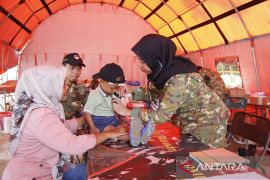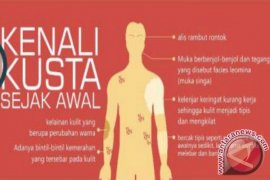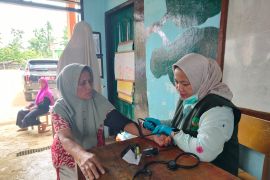"Today, we launched the national strategy, which has been completed. This disease is still a problem in Indonesia," director general of disease prevention and control at the ministry, Maxi Rein Rondonuwu, said at the opening of the 2023 ASEAN Dengue Day forum in Bogor, West Java, on Tuesday.
Japanese encephalitis (JE) is spread by the bite of Culex mosquitoes infected with the JE virus, which causes brain inflammation in infected patients.
Based on data reported by the Centers For Disease Control and Prevention (CDC), there are at least 20 countries where the disease has been detected, including India, Bangladesh, Japan, Thailand, Singapore, South Korea, North Korea, Vietnam, Laos, Malaysia, Burma, and Sri Lanka.
Rondonuwu expressed the hope that the national strategy document for combating Japanese encephalitis, which was compiled at the forum, would provide guidance in efforts to prevent and control cases in Indonesia.
Sentinel surveillance conducted in 11 Indonesian provinces in 2016 recorded 326 cases of acute encephalitis syndrome (AES), with 43 cases (13 percent) coming positive for JE, he disclosed.
He said that the clinical signs of JE are indistinguishable from other causes of AES, thus laboratory confirmation is very important.
JE cases are AES cases that have been confirmed with positive laboratory (IgM) tests.
As many as 85 percent of JE cases in Indonesia were recorded in the age group of 15 years and 15 percent in the age group over 15 years, Rondonuwu informed.
Surveillance data for JE cases in Indonesia from 2016 showed JE cases in 9 provinces, namely Bali, West Kalimantan, North Sulawesi, East Nusa Tenggara, Jakarta, Yogyakarta, Central Java, West Nusa Tenggara, and the Riau Islands.
He informed that Culex mosquitoes often bite at night and are usually found in rice fields and areas with stagnant water. The JE virus uses animals as hosts, such as pigs, buffaloes, and several species of birds.
Rondonuwu said that Culex mosquitoes are anthropophilic, that is, they not only suck the blood of animals, but also humans. Therefore, JE transmission from animals to humans can also occur.
Symptoms of the disease generally appear 4 to 14 days after infection and include fever, chills, headache, weakness, nausea, vomiting, and seizures, which are often experienced by children, he said.
Even though a JE vaccine is currently available, there is no specific medicine to cure the disease. Therefore, prevention through vaccination and avoiding mosquito bites is very important, he stressed.
Related news: ASEAN Dengue Day proof Indonesia serious about tackling disease
Related news: Wolbachia, dengue vaccines main topics at 2023 ASEAN Dengue Day
Translator: Andi Firdaus, Resinta S
Editor: Azis Kurmala
Copyright © ANTARA 2023












